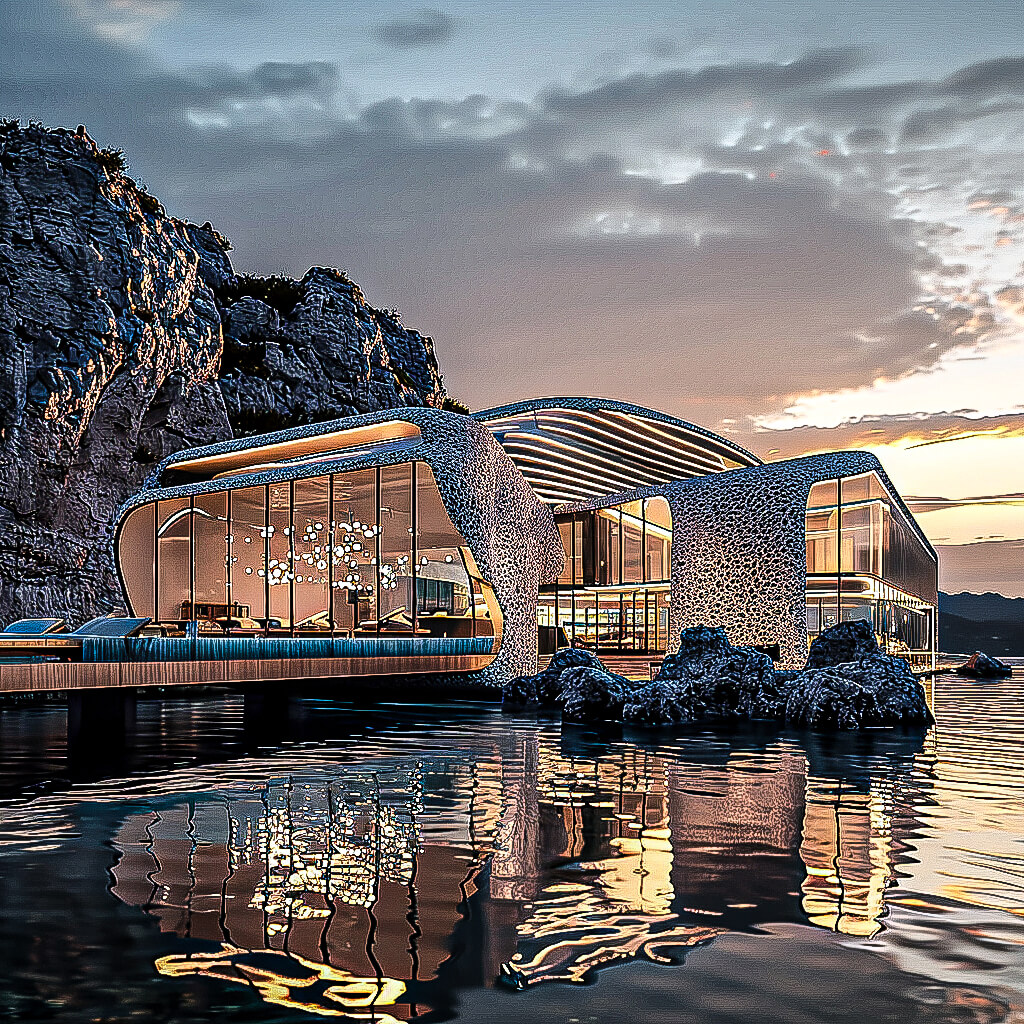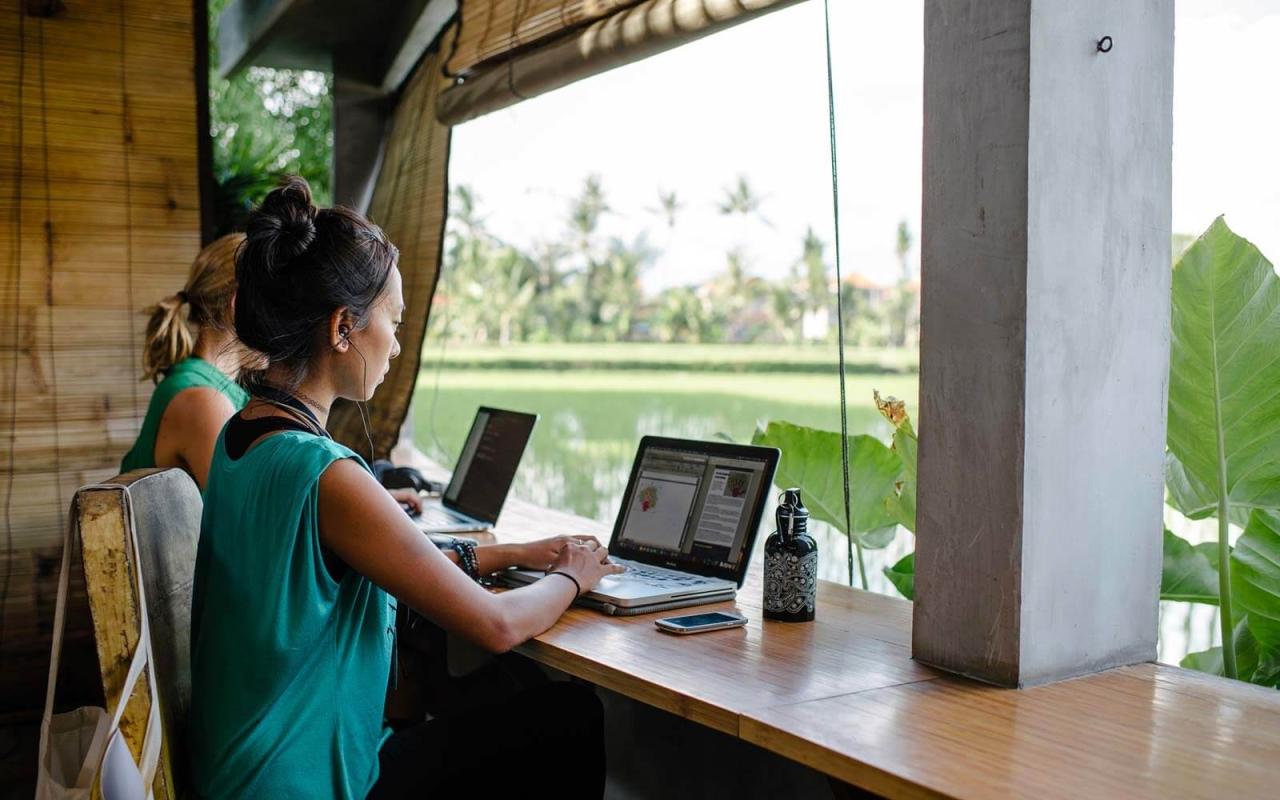The world of lodging stands on the precipice of a profound transformation. Driven by relentless technological innovation, shifting guest demographics, burgeoning sustainability concerns, and an ever-increasing desire for personalized experiences, the future of lodging promises to be unlike anything we’ve known. This isn’t merely about new amenities; it’s a fundamental re-imagining of how people travel, connect, and experience accommodation. This comprehensive article delves into the forces shaping tomorrow’s hotels, hostels, and alternative stays, exploring the cutting-edge concepts and groundbreaking technologies that will define hospitality in the coming decades. It’s a look into a world where every stay is a curated, conscious, and hyper-connected journey.
The Dynamic Forces Reshaping Lodging

Several powerful trends are converging to redefine the lodging industry, creating both challenges and unprecedented opportunities. Understanding these forces is key to grasping the trajectory of future accommodations.
A. Technological Revolution
Technology is arguably the most impactful driver of change. From AI and IoT to robotics and virtual reality, innovations are making stays more efficient, personalized, and seamless. This isn’t just about flashy gadgets; it’s about intelligent systems that anticipate needs and enhance comfort.
B. Shifting Guest Demographics and Preferences
Younger generations (Millennials and Gen Z) are now dominant travelers. They prioritize authentic experiences, sustainability, personalization, and seamless digital interaction over traditional luxury. Solo travel, bleisure (business + leisure), and extended stays are also on the rise, demanding flexible and adaptable lodging solutions.
C. Sustainability Imperative
Environmental consciousness is no longer a niche concern. Travelers are increasingly demanding sustainable practices, from energy efficiency and waste reduction to ethical sourcing and community support. Future lodging must not only minimize its footprint but actively contribute to environmental regeneration.
D. The Experience Economy
Today’s travelers seek immersive, transformative experiences rather than just a place to sleep. Lodging is becoming a destination in itself, offering unique activities, cultural immersion, and opportunities for personal growth that blur the lines between accommodation and entertainment.
E. Health, Wellness, and Safety Focus
The recent global health events have amplified the importance of hygiene, cleanliness, and overall well-being. Future lodging will integrate advanced health protocols, offer dedicated wellness facilities, and prioritize spaces that promote mental and physical rejuvenation.
F. Personalization and Customization at Scale
Generic stays are out. Guests expect highly personalized experiences tailored to their preferences, whether it’s room temperature, dining options, or activity recommendations. Technology makes this level of customization feasible at scale, making every guest feel uniquely valued.
Key Innovations Defining Tomorrow’s Lodging

The evolution of lodging is fueled by groundbreaking innovations that are transforming every aspect of the guest journey and hotel operations.
A. Hyper-Personalized Guest Experiences through AI
Artificial Intelligence (AI) and Machine Learning (ML) will move beyond basic chatbots to create deeply personalized guest journeys.
A. Predictive Analytics for Proactive Service: AI will analyze vast amounts of guest data (from past stays, social media, booking patterns) to anticipate needs before they arise. This means knowing a guest’s preferred pillow type, predicting their likely dining choices, or even suggesting a late check-out if their flight is delayed, all automatically.
B. AI-Powered Concierge and Recommendation Engines: Virtual assistants will offer hyper-tailored recommendations for local experiences, restaurants, and activities, factoring in real-time local events, weather, and individual guest preferences, creating bespoke itineraries.
C. Dynamic Pricing Beyond Basic Algorithms: AI will enable real-time, micro-level dynamic pricing, adjusting rates not just by demand, but by individual guest profiles, loyalty status, and even the perceived value of specific room attributes.
D. Sentiment Analysis for Real-time Feedback: AI will monitor guest sentiment across various digital touchpoints (social media, in-app messages, voice interactions) to identify and address issues proactively, allowing hotels to intervene before a negative experience escalates.
B. The Pervasive Internet of Things (IoT) in Smart Rooms
IoT will transform every room into a responsive, intelligent environment.
A. Seamless Room Control: Guests will control lighting, temperature, entertainment (streaming their own content), curtains, and even aromatherapy via in-room tablets, their personal smartphones, or intuitive voice commands.
B. Personalized Ambiance: Room settings will automatically adjust to guest preferences upon entry, potentially pre-setting temperature, lighting color, and even playing preferred music.
C. Predictive Maintenance: Sensors embedded in appliances and infrastructure will monitor performance and alert staff to potential issues before they become problems, minimizing guest disruption and maintenance costs.
D. Energy Optimization: IoT sensors will detect room occupancy to automatically adjust energy consumption, turning off lights and AC when a room is empty, contributing significantly to sustainability goals.
C. Advanced Robotics and Automation
Robots will move beyond novelty to become integral parts of hotel operations.
A. Service Delivery Robots: Autonomous robots will handle tasks like delivering room service, fresh towels, amenities, or even luggage directly to guest rooms, enhancing efficiency and reducing staff workload.
B. Automated Housekeeping Assistants: Robots will assist with tasks like vacuuming large areas, sanitizing surfaces using UV light, or sorting laundry, allowing human staff to focus on more detailed cleaning and personalized touches.
C. Front-of-House Augmentation: AI-powered concierge robots will provide multilingual check-in assistance, answer common questions, and guide guests, freeing up human staff for more complex guest interactions and problem-solving.
D. Kitchen Automation: Robotic arms might assist with repetitive food preparation tasks, improving consistency and speed in hotel kitchens.
D. Immersive Augmented Reality (AR) and Virtual Reality (VR)
These technologies will create new dimensions of guest interaction and experience.
A. AR-Enhanced Navigation and Information: Guests can use AR apps on their phones to navigate large resorts, explore local neighborhoods with overlaid information on points of interest, or view digital menus with interactive 3D dishes.
B. Virtual Experiences within the Property: VR headsets in rooms or common areas could offer virtual tours of local attractions, immersive meditations, or interactive games, providing unique entertainment without leaving the hotel.
C. Personalized Storytelling: AR could bring hotel history or local legends to life within physical spaces, creating engaging and educational experiences.
E. Biometric Authentication and Frictionless Access
Biometrics will streamline security and guest flow.
A. Facial Recognition/Fingerprint for Check-in and Room Access: Guests could check in and access their rooms simply by scanning their face or fingerprint, eliminating the need for cards or mobile keys. This offers unparalleled speed and security.
B. Seamless Payments: Biometric authentication could enable frictionless payments at restaurants, bars, and shops within the property.
C. Personalized Service Recognition: Staff could instantly recognize loyalty members or VIPs, allowing for immediate personalized greetings and service.
Redefining the Guest Experience
The cumulative effect of these innovations will create a fundamentally different guest experience.
A. The “Invisible” Hotel
Technology will operate so seamlessly in the background that guests may barely notice it. The focus shifts from the tech itself to the effortless, intuitive comfort and personalization it enables. From auto-adjusted lighting to perfectly chilled rooms upon arrival, the experience will feel magically responsive.
B. Curated and Immersive Destinations
Lodging will become an integral part of the destination’s story. Hotels will act as cultural hubs, offering immersive local experiences, workshops, and access to local communities, blurring the lines between stay and exploration. This might include curated art exhibits, local cooking classes, or guided heritage tours directly from the hotel lobby.
C. The Co-Everything Model
The rise of remote work and the desire for community will see more lodging offering integrated co-living, co-working, and co-play spaces. This appeals to digital nomads, long-stay guests, and locals alike, fostering vibrant social ecosystems within the property. Flexible lease terms, shared amenities (kitchens, lounges, gyms), and community events will be central.
D. Wellness as a Core Offering
Beyond just a spa, wellness will be deeply integrated into the entire guest journey. This includes smart rooms that monitor sleep and offer personalized relaxation programs, healthy and hyper-local dining, dedicated meditation pods, fitness studios with virtual trainers, and partnerships with local wellness practitioners. Lodging becomes a proactive partner in guest well-being.
E. Gamification of the Guest Journey
Elements of gamification will be introduced to enhance engagement and loyalty. Guests might earn points for sustainable choices, unlock personalized rewards through interactive challenges, or participate in AR-based scavenger hunts within the property, making the stay more interactive and fun.
Challenges and Considerations for the Future
While the future of lodging holds immense promise, several significant challenges must be addressed for these innovations to truly flourish.
A. Data Privacy and Cybersecurity
The exponential increase in guest data collection (biometrics, preferences, real-time location) necessitates unparalleled cybersecurity measures. Hotels will be prime targets for sophisticated cyberattacks, making robust data protection, encryption, and strict adherence to global privacy regulations (e.g., GDPR, future Indonesian data laws) paramount. Maintaining guest trust will depend entirely on safeguarding their information.
B. High Capital Investment and ROI Justification
Implementing many of these cutting-edge technologies (AI infrastructure, extensive IoT networks, robotics) requires substantial upfront capital investment. Hotels, especially smaller, independent properties, will face challenges in justifying the return on investment. The focus will shift to proving how these technologies directly translate into increased revenue, operational cost savings, and enhanced guest satisfaction and loyalty.
C. The Balance of Automation and Human Connection
Hospitality fundamentally remains a people-centric industry. The critical challenge is to strike the right balance between automation (for efficiency) and preserving the genuine human connection, empathy, and personalized service that many guests still highly value. Technology should augment and empower staff to provide better service, not replace meaningful human interaction where it matters most, particularly for complex problem-solving or creating memorable moments of delight.
D. Technical Integration and Interoperability
The multitude of disparate technological systems (Property Management Systems, CRM, smart room tech, booking engines, energy management systems) within a modern hotel can be a complex web. Ensuring seamless integration and interoperability – allowing different systems to communicate and share data effectively – will be a continuous challenge requiring open APIs, standardized protocols, and skilled IT teams.
E. Rapid Technological Obsolescence
The pace of technological change is relentless. Systems and hardware purchased today can quickly become outdated. Hotels need to invest in flexible, scalable, and adaptable technology infrastructure that can be easily upgraded, integrated with new innovations, or replaced without requiring massive, costly overhauls of their entire property every few years. Future-proofing investments will be critical.
Conclusion
The future of lodging is not just about buildings; it’s about intelligent, responsive ecosystems designed to anticipate needs, elevate experiences, and operate in harmony with both people and planet. From hyper-personalized interactions powered by AI to seamlessly integrated smart rooms, and from sustainable design to co-living communities, tomorrow’s accommodations will offer an unparalleled level of comfort, convenience, and immersion. While challenges around data security, investment, and maintaining the vital human touch remain, the benefits of embracing this technological evolution are undeniable. The lodging industry is poised for a profound transformation, moving towards an era where every stay is not just a place to rest, but a curated, conscious, and unforgettable journey. The time for intelligent lodging has arrived.













